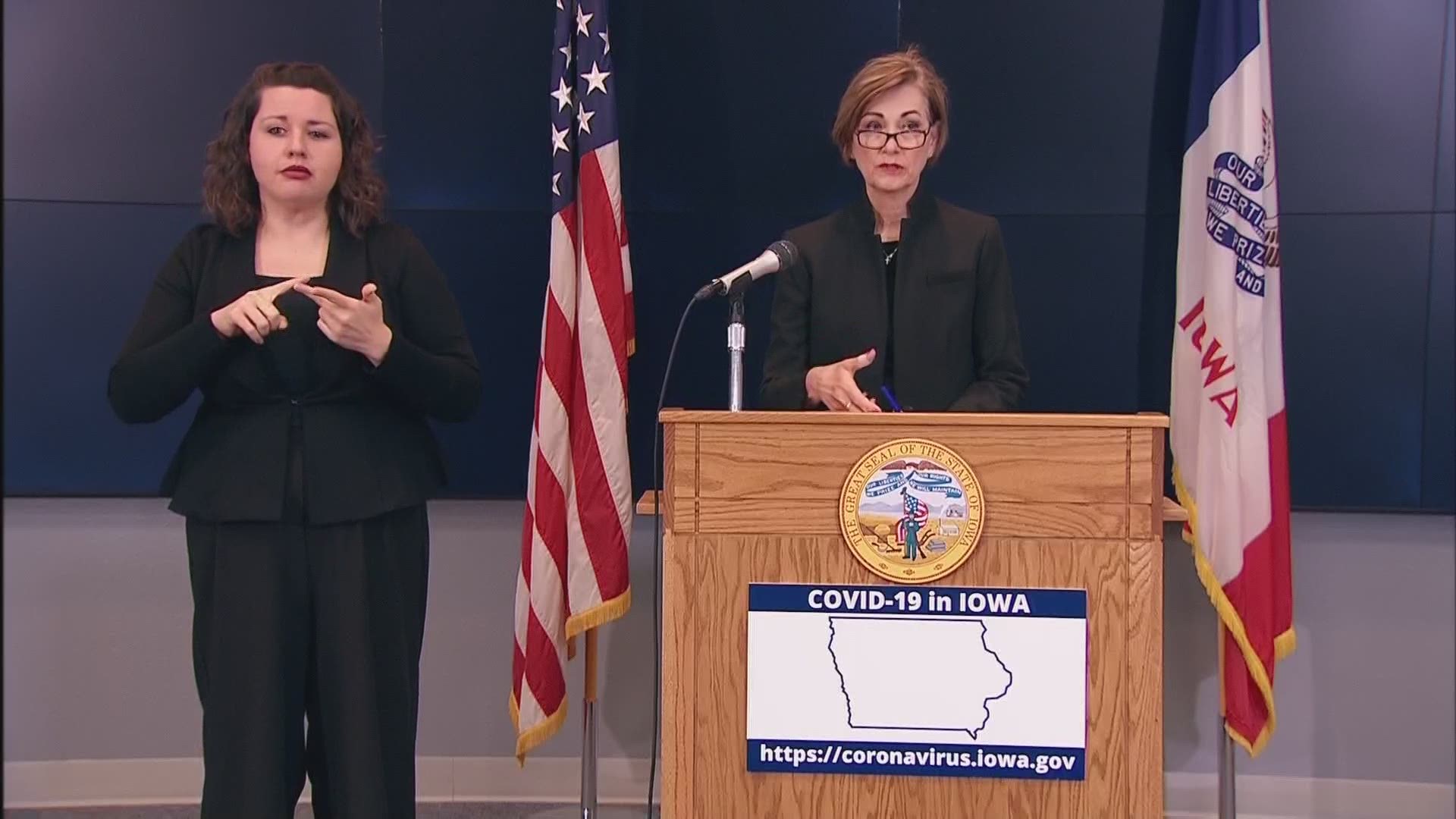COLUMBUS JUNCTION, Iowa — A meatpacking plant in southeast Iowa is seeing an outbreak of COVID-19 cases.
Tuesday, Gov. Kim Reynolds announced 86 employees at Tyson Foods plant in Columbus Junction tested positive for the coronavirus.
Tyson Foods released the following statement about steps they're taking to protect workers at plants that are still open.
"We’re working hard to protect our team members during this ever-changing situation, while also ensuring we continue fulfilling our critical role of helping feed people across the country."
"We’ve been checking worker temperatures, providing face coverings and initiating additional cleaning. We’ve implemented social distancing measures, such as installing workstation dividers and providing more breakroom space. We relaxed our attendance policy in March to encourage workers to stay at home when they’re sick. We’ve also been educating team members on COVID-19, including the importance of following CDC guidelines away from work."
'"When we learn an employee has experienced symptoms and tested positive, they remain on sick leave until they are released by health officials to return to work. We also affirmatively notify anyone who has been in close contact with the positive team member."
Tuesday, Local 5 spoke with several employees at the Tyson plant about the outbreak.
They asked we do not reveal their identities.
"My symptoms are not extreme, just have bad headaches, sore, cough, but my breathing is good," a Tyson employee said.
That employee said Tyson has done a great job of keeping workers safe, but not everyone agreed with that.
"During break times, everyone is so close to each other, there wasn't enough PPE and on the production floor and everyone works very close to one another," a different employee said. "I wish they would provide adequate PPE for their employees, space out break times, just let a couple of lines out for a break at a time. They preach social distancing and that we should stay six feet apart from one another, but yet, they don't enforce it at work."
So how could the closure of one plant potentially impact the supply chain across the country?
Well, it's because there are several other plants that have shut down, and many that are still open, have slowed production.
"It's not like you can send all the pigs on vacation or tell them to take a few days off," pig farmer Mike Paustian said.
RELATED: What is going on in Louisa County?
Paustian said normally, he sells his hogs to the Tyson Plant, but with it shut down, he has to find other places to sell to.
"It's kind of forced us to take everything day-to-day," Paustian said.
Paustian, who is also president of the Iowa Pork Producers Association, said right now, hog farmers are taking a big hit.
He said on average, they're losing $37 per head.
"When we say farmers are losing $37 per head, that means it cost them 37 more dollars to raise that hog to market weight than what the market is paying them for that animal right now," Paustian said.
The biggest disruption they are seeing relates to logistics.
"Logistically, that's kind of our main concern right now," Paustian said. "The shutdown in Columbus Junction and the shutdown in Sioux Falls. Many of the other plants have slowed down and so that's going to create a backup in hogs. That's going to create challenges for producers to try to accommodate keeping the hogs on their farms longer than they would normally expect."
Paustian said the Iowa Pork Producers are in regular contact with the governor and Iowa's Secretary of Agriculture Mike Naig to make the pork industry's needs known.
"We certainly need to protect the health of people, and we need to make that our number one priority, but at the same time, those of us involved in agriculture, we have a responsibility to provide safe and affordable food," Paustian said.
Paustian said even though the industry is hurting from this pandemic, consumers shouldn't go out and buy a bunch of pork.
There will still be plenty available unless things change drastically.
"We certainly don't want people to panic buy and worry that there's not going to be pork available in the stores," Paustian said. "There is a lot in cold storage and that has the ability to absorb some of these disruptions. I would encourage people to not make any kind of panic decisions about stocking up on meat. There should be plenty available as long as these disruptions aren't widespread and long-lasting."

